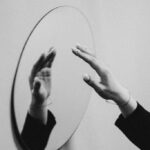No matter what happens to the publishing industry, there will always be books, and there will always be readers. That, I suppose, is the good news for book lovers around the world. The bad news is that books are going digital. This being a digital age, most of us were probably expecting it at some point. Letters have become emails. Tracks have become mp3s. Typewriters have become word processors. Backyards have become televisions. Books are becoming Nooks.
The wonderful thing about Nooks and Kindles and other such products is that they’re basically book iPods—they can hold hundreds of books in a little handheld device. Instead of packing ten books into your backpack for a long trip, you can just slip your Kindle or Nook into the side pocket and be on your way. They also effectively cut book prices in half, so instead of driving the terribly long and grueling distance to Barnes and Noble and shelling out thirty bucks for a hardback, we can just sit at our computers, point, click, download, and begin reading almost immediately. If we really want to get desperate about the pros, we can also say that Nooks and Kindles save trees, but that might be ignoring the energy it costs to charge them up.
But all of those things are really aside from the point. I really don’t care how Nooks and Kindles save money and provide hundreds of books at the tips of your fingers without having to move an inch. The truth of the matter is that homes are much less beautiful without bookshelves packed full of books. They decorate the nooks and crannies of homes with artful spines and interesting thoughts. Books are like clothing for homes. Nooks and Kindles are the thongs of the book industry—homes would feel naked if that’s all they had.
Maybe it’s because I’m nosy, but I love looking through other people’s bookshelves. I like to see what people are putting into their minds, maybe pulling a book off the shelf and asking them about it, opening a couple up and reading their first lines. I like to look at chapter headings and fonts, see the crack in the binding where the reader turned back to their favorite passage over and over again, maybe dip my nose in to smell the musty scent of that particular book. I guess I could pick up a Nook from a coffee table and flick through all the book titles, but it’s a much lesser experience. I wouldn’t really want to…because all Nooks look the same. They’re all plastic, lifeless objects. Books each have their own personality, and cracking open the front cover to reveal the title page is so much more exciting than tapping a little picture of a book cover and being taken to another screen.
Imagine reading in a room with others and not being able to hear the rustle of turning pages, or ask what they’re reading and not have them lift the book up so you could see the cover for yourself. Imagine sharing a beloved book with someone else by sending them a file, instead of handing them your own copy, earmarked, battered, and loved.
Books are more personal when they are given their own bodies. My experience of the Harry Potter series is closely intertwined with the physical books themselves. The Order of the Phoenix was blue and misty throughout, filled with darkness and mystery and lurking emotions. The Half-Blood Prince was green, the color of Harry’s growth into the man he needs to be for the next book, and the sinister color of Tom Riddle’s snaky past. The smell of the pages has linked itself to my experience of reading them, so that each time I open one from the series I’m taken back to my childhood, when I was curled up in my sheets and reading late into the night.
Books are just as much the stories they contain as they are bodies with bindings, covers, and pages. If physical books really are on their way out, I’m sad for naked stories I’ll read in the future.

Will Montei is currently in pursuit of a Masters in Teaching at Seattle Pacific University. He has been writing for the post calvin since it began in 2013.









I don’t think I realized until I had a Kindle how much reading is just as much about fingering the corners and turning the pages and bending the covers back and forth in my hands as it is about reading actual words. For sure, a Kindle is (or rather, was – I broke it within a year) useful when I’m living in a country where I don’t have access to a lot of books, but I remember very little of the books I read on Kindle, even some of the titles or authors. Something about reading on a rigid screen with a bumpy button to click for every page turn just didn’t bring the stories and language to life for me. And strangely, it left me constantly feeling unsatisfied that I never had something “good” to read. I went back to the U.S. for a few weeks this summer and I decided not to invest in another Kindle. On coming back to Tanzania, I decided to reread my own books or to read the random ones lying around that I would normally not pick up right away…and I’ve discovered that I actually have plenty of reading material to keep me pretty well satisfied.
I know exactly what you mean! It’s sort of like seeing a movie on an iPod versus seeing it in the theatre — theaters are always a more memorable experience.
I cheered through every paragraph of this post. I still occasionally type on a typewriter; I still send real letters through the postal system; I’m happy to use a record player whenever I can… and I plan to fight for physical books for as long as possible. Because I think you’re right: without them, we’d lose far more than we’d gain.
Wow! I’m glad you relate. I think letter writing is becoming a lost art form. Emails and Facebook make communication so easy that we don’t always put as much thought into what we write, whereas writing handwritten letters necessitated time and effort.